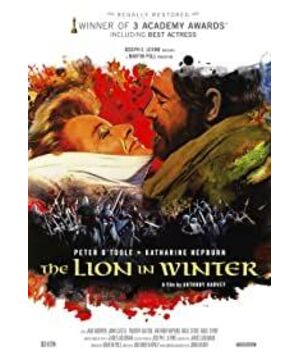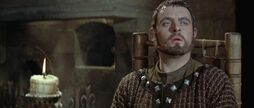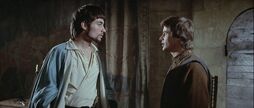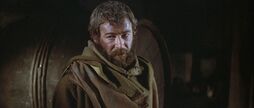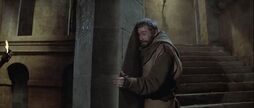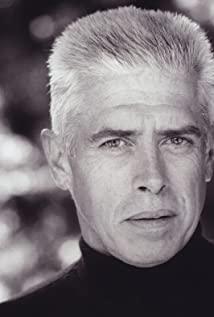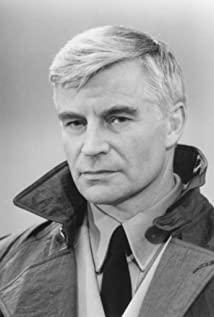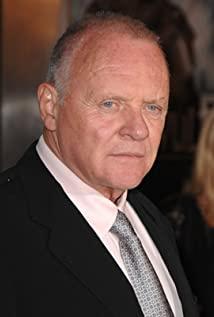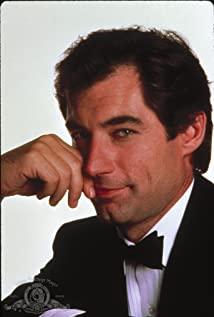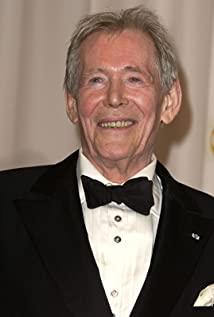The story tells that King Henry II of England, on Christmas Day 1183, ordered his estranged wife, Eleanor, to return to the palace with his three sons to reunite with his three sons, so as to take the opportunity to choose the heir to the throne. As Henry II and Eleanor disagreed over their heirs, as well as Henry II's mistress Alice and the scheming young French king Philip II, a family conflict that almost turned into mutiny ensues .
Starring the great Peter O'Toole, Katharine Hepburn and the then rising star Anthony Hopkins (Cannibal Dr. Hannibal?) and Timothy Dalton (Pierce Brosnan's former 007 actor).
I have always felt that palace films are a difficult type of film to make: first of all, the monarch is also a mortal, but often the crown has created many unusual talents. In this way, the requirements for the quality of the actors are relatively high. On the basis of thoroughly understanding the historical prototypes, they must be able to add their own understanding and interpretation, and erase redundant emotions to shape characters.
The second is how to find a good entry point based on the history of that bad debt, and shoot the shining points of human nature from ancient times to the present. Hollywood has many masterpieces that celebrate the truth, the good and the beautiful, but compared to giving a role model, how to inspire others from a negative case is the real technical work.
Finally, there is a very important point - shooting Gong Wei is very expensive! Clothing, beauty fingers, photography, etc. are also related to the persuasiveness of the film, which in turn is related to the quality of the film, but the gorgeous set cannot be overwhelmed. Take a look at the famous counter-example, Elizabeth Taylor's "Cleopatra", which lost money to Twentieth Century Fox, which almost dragged down the investment.
Taking these factors into account, when the producer decides to invest in a palace film, the requirements for the script will be very strict. This masterpiece, which was born in 1968, is based on James Goodman's play of the same name. A good script is half the battle.
Before 'Winter Lion', my favorite court movie was 1998's 'Elizabeth'. Cate Blanchett, the star, is so brilliant that it robs all the other characters of the brilliance, which is one of the reasons I privately feel that it ends up being inferior to The Lion in Winter. Cate Blanchett is brave and good at fighting, after all, she is only fighting alone. You must know that the most exciting scenes in "The Lion in Winter" almost all come from the rivalry between Peter O'Toole and Katharine Hepburn. of the most vivid.
Let's go back and look at history a little: Henry II was the son of Matilda, daughter of King Henry I of England, and his father was Godfrey V, Count of Anjou. So Henry is half French. At the age of 19, when he was Duke of Anjou, he married Eleanor of Aquitaine (30). Thus Henry inherited Normandy from his mother, Anjou from his father, and Aquitaine as a dowry, thus making him effectively the greatest lord of France. Henry II, who became the king of England, was historically known for his ability to play tricks and tricks, and his famous wife, Eleanor, was not inferior. Before marrying Henry, Eleanor was the wife of King Louis VII of France. , and later divorced Louis VII for fornication. Their three sons, one of whom is the legendary Lionheart, and the other who is a signer of the Magna Carta that has influenced it to this day. In a word, there is definitely drama in this couple.
In the movie, Henry repeatedly emphasized that he married Eleanor just for the sake of territory. Although he also admitted that he had loved Eleanor, it was obvious that this kind of love seemed to exist and was easily denied by him. Henry, who struggled to ascend to the position of the supreme ruler, would not be interested in the love of his children. In this way, his original love for Eleanor, which was not pure, ended with the passage of time and Eleanor's old age. Because for him, love is just a means, otherwise he would not have almost married his mistress Alice to his eldest son Richard in order to ensure the security of the territory in the film.
Eleanor's life is as she said, everything she does is to fight against Henry tirelessly, maybe only in this way, as a woman, can she feel a little bit of the attention she needs. . Look at Katherine Hepburn's arguably great performance: Lying in bed, she angered Henry by blaming her for an affair with Henry's father. She portrayed the vixen's face to the fullest, shamelessly recalling every detail of the affair, and occasionally inserting seemingly sincere sighs, until Henry was furious.
And it was such a woman who knew how to turn herself into a sharp blade to attack. At the end, after she had actually won the absolute victory in the battle for power, she leaned on Henry's arms and cried bitterly.
"I can endure failures like yours - wasted effort, nothing, country sullen, people complaining. I can endure and even smile because you will never come back to me no matter what. You are the only one I love I want to die, and laughing at it is a sign of despair in my heart. I have no hope in my life."
But Henry, who was obviously on the loser's side, put his arms around her and told her gently, "We all Still alive. Who knows? That's hope."
Look at this dialogue, it's a good way to reverse the saying - hateful people must be pitiful. What a tangled and confusing enemy! Both of them take harming each other's profits as the pleasure of life, so that they will inevitably lose both in the end. Even the children are the tools and chips they use one after another. He asked Henry playfully, "I want to know, have you ever loved me?" After getting a negative answer, she smiled slightly, "It's much better this way."
Perhaps as they themselves said: they are animals in the jungle, the darkness surrounds them, and countless eyes are watching them in the darkness, and the darkness can see them. looking eyes. They will eventually die, but until death comes, they still have to fully enjoy the fun of torturing each other.
After the 134-minute film, I repeatedly pondered the meaning of the film's title, who is this winter lion referring to? The viewer can't help but feel a sense of despair from the bottom of his heart.
——How much I miss you is meaningless to you. Because you never put me in your heart or even in your eyes.
The film won Best Actress, Best Screenplay and Best Score at the 1969 Oscars, and was nominated for Best Picture, Best Actor, Best Director and Best Costume Design. And this is the reason why I always feel that Peter O'Toole is more aggrieved than Katharine Hepburn. Counting "The End of Love" in 2007, the actor who played Lawrence of Arabia has won the Oscar nine times, and all nine times. It's a return of a feather. Katherine Hepburn, with her four-time actress qualifications, has become an existence that cannot be surpassed so far. With such an arrangement, I wonder what Mr. Peter O'Toole will feel every time he talks about it?
View more about The Lion in Winter reviews


